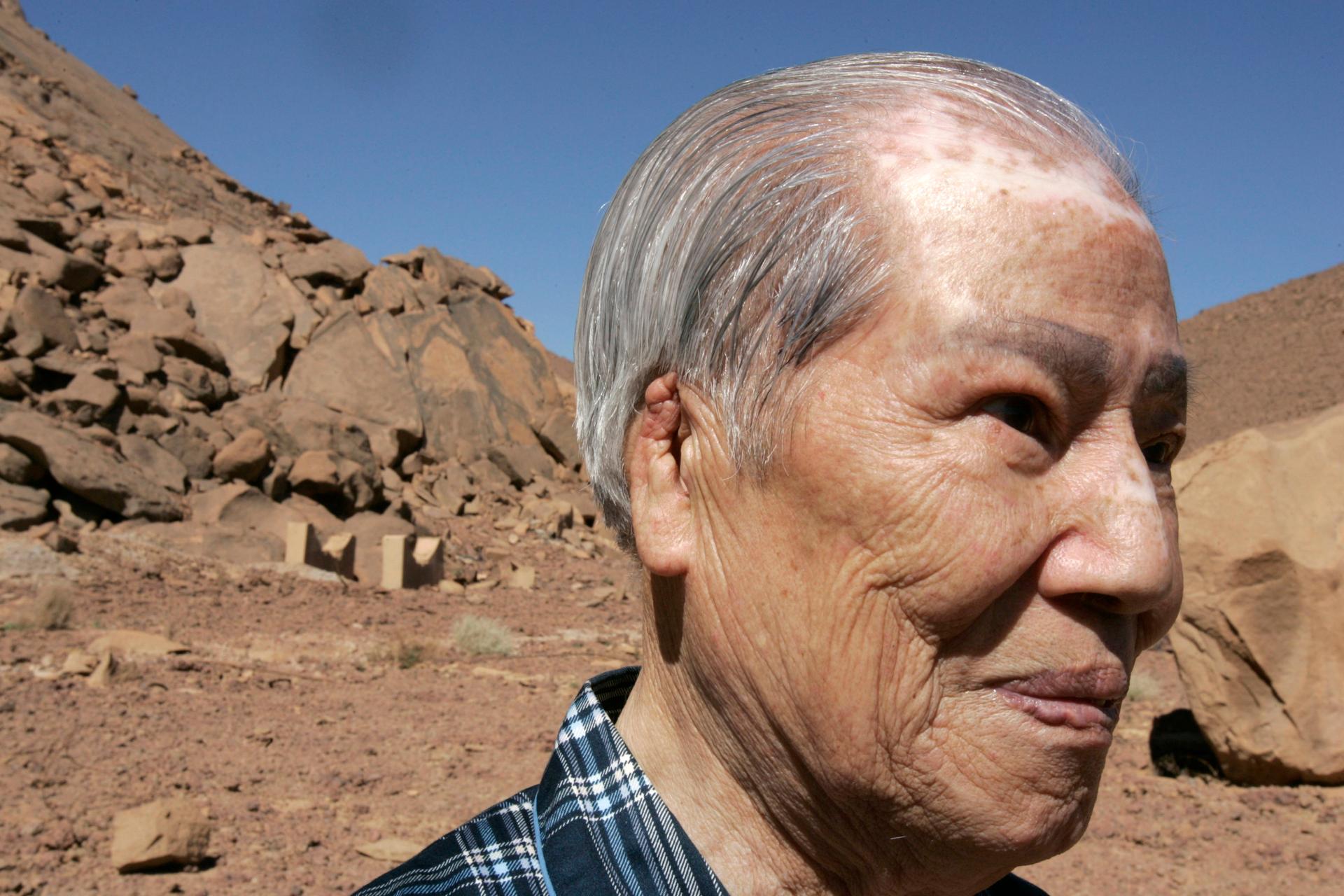‘I still hate the glow of the setting sun’: Hiroshima survivors tell their stories
Hiroshima survivor Sunao Tsuboi is seen at a French nuclear test site in In-Ekker near Ain Meguel, February 16, 2007.
For survivors of the world's first nuclear attack, the day America unleashed a terrible bomb over the city of Hiroshima remains seared forever in their minds.
Though their numbers are dwindling and the advancing years are taking a toll, their haunting memories are undimmed by the passage of more than seven decades.
On the occasion of Barack Obama's offering of a floral tribute on Friday at the cenotaph in Hiroshima Peace Memorial Park — the first ever visit by a sitting US president — some of them share their stories with AFP.
Emiko Okada
Emiko Okada, now 79, was about 1.7 miles from ground zero and suffered severe injuries in the blast. Her sister was killed.
"All of a sudden a flash of light brightened the sky and I was slammed to the ground. I didn't know what on earth had happened. There were fires everywhere. We rushed away as the blaze roared toward us.
"The people I saw looked nothing like human beings. Their skin and flesh hung loose. Some children's eyeballs were popping out of their sockets.
"I still hate to see the glow of the setting sun. It reminds me of that day and brings pain to my heart.
"In the aftermath, many children who had evacuated during the war came back here, orphaned by the bomb. Many gangsters came to Hiroshima from around the country and gave them food and guns.
"President Obama is a person who can influence the world. I hope that this year will be the beginning of knowing what actually happened in Hiroshima and Nagasaki under the mushroom clouds."
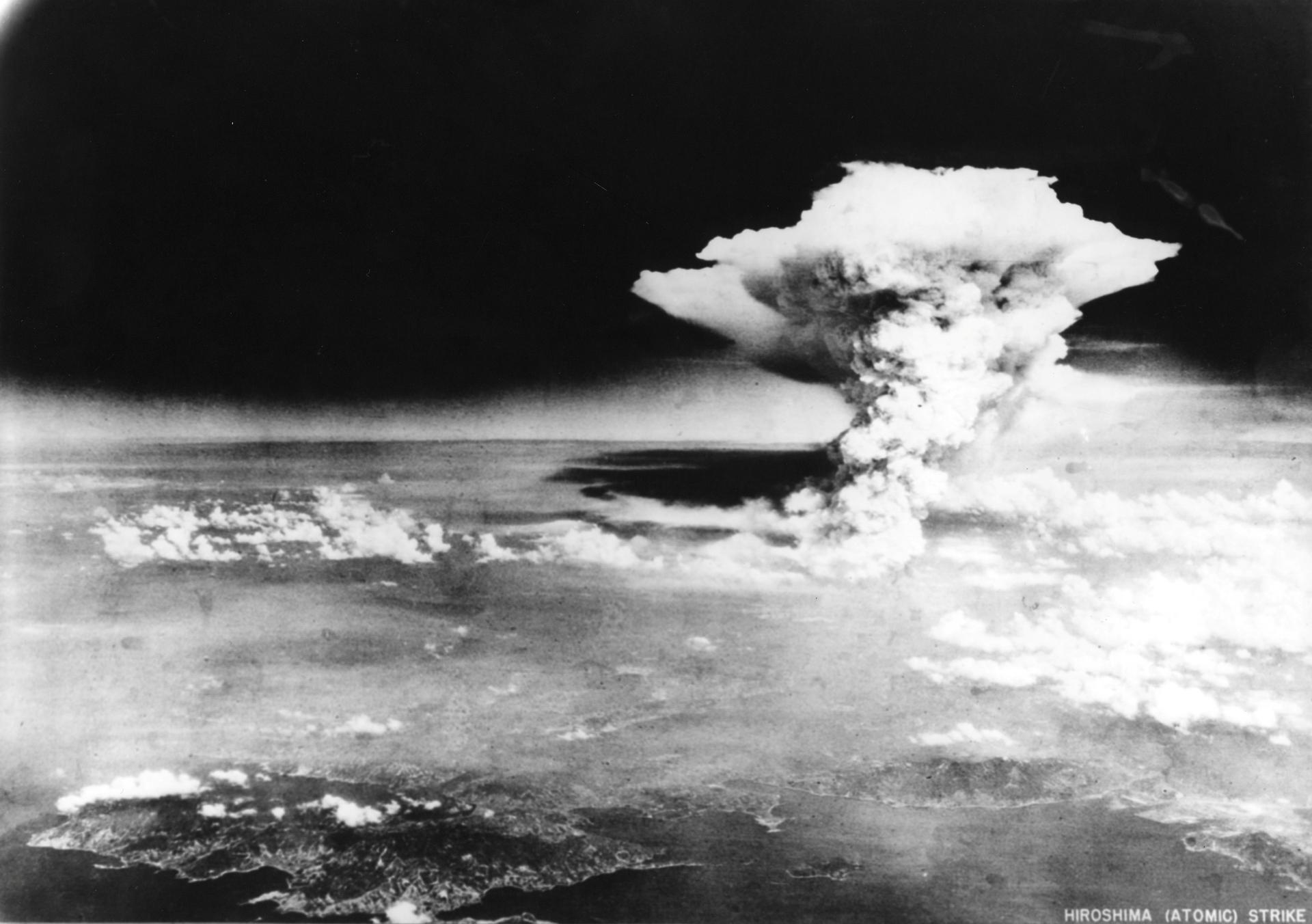
Keiko Ogura
Keiko Ogura, now 78, has devoted her life to keeping alive the memory of the devastating day.
"Shortly after (the bomb exploded) it rained. It was a sticky black rain and made my clothes wet.
"I saw a line of seriously burnt people, like silent ghosts.
"Suddenly, a girl grabbed my leg and said in a weak voice: 'Give me water.' Others also said: 'Water. Water.'
"I brought water to them, but some died right after they drank it. I regretted giving it to them.
"I saw smoke from a nearby park where bodies were being cremated. Sometimes I could smell the bodies burning.
"We faced the horror (of nuclear weapons). I tell everybody that it was hell. But they don't understand.
"There is no peace in Hiroshima. There is horror here."
Park Nam-Joo
Park Nam-Joo, now 83, is an ethnic Korean, who has suffered from breast and skin cancer because of the radiation she was exposed to that day.
An estimated 20,000 Koreans were among the dead in Hiroshima. Many had been taken to Japan as forced labourers during its 1910-1945 colonial rule of the Korean peninsula:
"Everything was broken to pieces. Everywhere was rubble. It's beyond description. It was inhumane.
"Hiroshima was a sea of fire. People bled from everywhere on their bodies: 'I'm burning. I'm burning. Please help,' they cried.
"The wounds of the living were infested with maggots. There was no medicine for it.
"People say human life is to be revered but the lives of those who died in the atomic bombing were just like those of insects.
"I still shed tears when I recall the scene. Many people don't want to remember that.
"I want people to know that not only Japanese but Korean, Chinese and others also suffered in the atomic bombing.
"I'm Catholic. Wearing a rosary and with a statue of the Virgin Mary next to me, I pray at night for a peaceful passage to heaven."
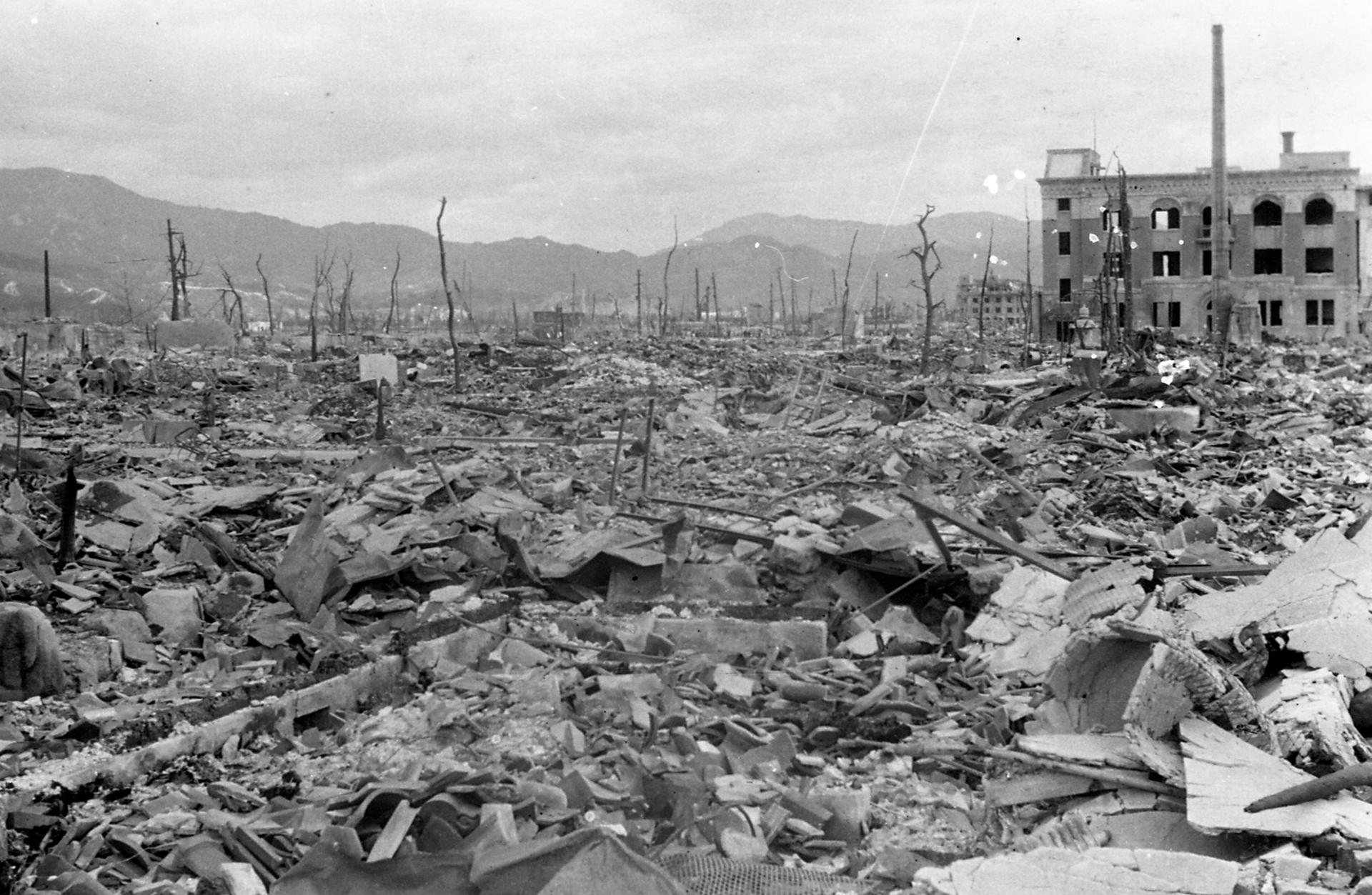
Misako Katani
Misako Katani, now 86, is one of the rare survivors of both Hiroshima and Nagasaki.
When her mother and sister were killed in the Hiroshima bomb she took their ashes to the ancestral graveyard in Nagasaki — only to be caught up in the second atomic blast.
"My father told me 'Your mom and Tamie (Katani's sister) should be there.' So I removed the rubble and found my mother's ashen bones.
"I put them into a box. And then I found bones which were too fragile to pick up. My father said: 'Those are Tamie's.' I guess my mother tried to escape while holding my sister. And then the house collapsed on them and they burned to death.
"I still vividly remember the scene. It's unforgettable. I almost cry when I revisit the past.
"I suffered from a lot of lung afflictions such as pneumonia. Whenever I sit at our family Buddhist altar, I tell my late mother, 'Hi mom, please take me to your place.' but she never does.
"The color of my memories is grey.
"I don't dislike America although I hated it in the past. I want to meet (President Obama) and tell him, 'Please do not wage war anymore'."
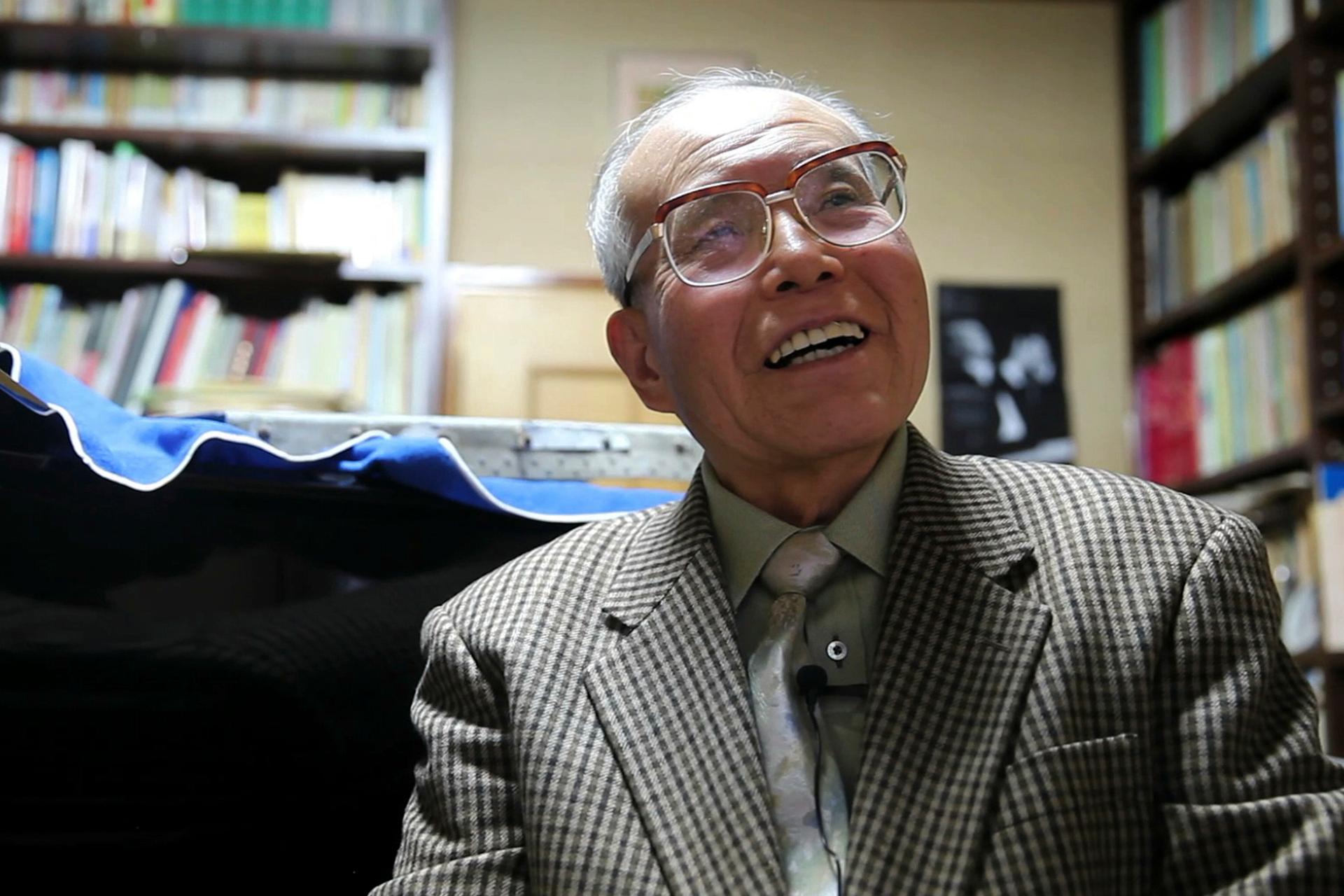
Shigeaki Mori
Shigeaki Mori, now 79, is known for his study of the fate of US prisoners of war who were in Hiroshima. He now researches the fate of Australian POWs in Nagasaki.
"I was blown into a river while walking on a bridge. I was under the mushroom cloud. I decided to stay in the river for a while.
"I crawled up out of the water and saw a woman tottering toward me. Blood was everywhere on her body, and internal organs hung from her abdomen. While holding them, she asked me where she could find a hospital. Crying, I ran away, leaving her alone.
"People who were still alive were collapsed all around me. I escaped by stamping on their faces and heads. I heard screams from a broken down house. But I ran away as I was still a child with no power to help."
Sunao Tsuboi
Sunao Tsuboi, now 91, is co-chairperson of the Japan Confederation of A- and H-Bomb Sufferers Organizations. He suffered serious burns and developed cancer and other diseases, but remains active in his lifelong campaign for a nuclear free world.
"I suffered burns all over my body. I had a terrible experience. Naked, I tried to run away for about three hours on August 6 but finally could no longer walk. I then wrote on the ground (with a small rock), 'Tsuboi dies here.'
"I lost consciousness several times and eventually came to on September 25.
"I can tolerate hardships for the sake of human happiness. I may die tomorrow but I'm optimistic. I will never give up. We want zero nuclear weapons.
"An apology doesn't matter. I just want (President Obama) to come and visit Hiroshima and see real things and listen to the voice of survivors."
This is part of a multimedia series on Hiroshima survivors that AFP is running ahead of US President Barack Obama's historic visit to Hiroshima.
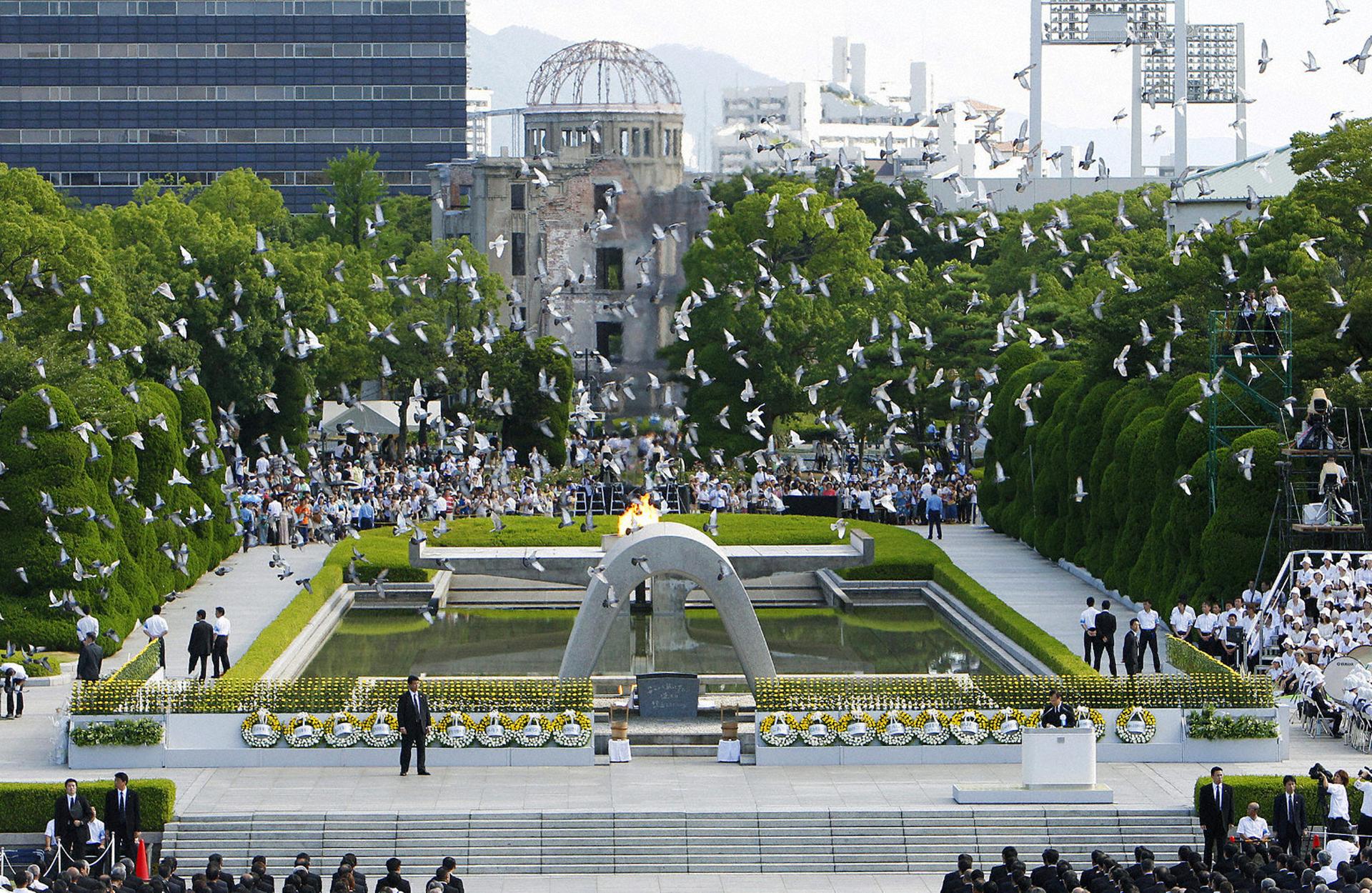
si/kgo/hg/tm
Every day, reporters and producers at The World are hard at work bringing you human-centered news from across the globe. But we can’t do it without you. We need your support to ensure we can continue this work for another year.
Make a gift today, and you’ll help us unlock a matching gift of $67,000!
